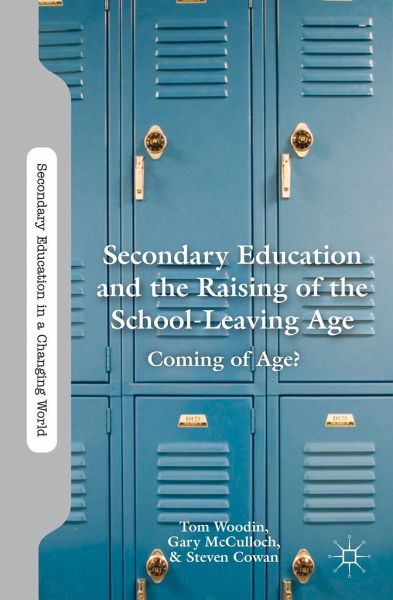"This is an excellent historical analysis of a much neglected, yet extremely important field of research. It speaks to both historians and policy makers. It is exceptionally well written, extensively researched and highly readable. One of its most attractive features is its comparative dimension, stimulating one to cogitate engagement in similar research across a range of other countries." - Tom O'Donoghue, Winthrop Professor, Graduate School of Education, The University of Western Australia
"This book provides the first comprehensive historical study of debates about raising the school-leaving age. The authors show that the upward expansion of compulsory schooling, which from a distance seems like a steady and unavoidable
development for all modernizing countries, has been both episodic and continually contested in the UK over the years. Their analysis provides a window on the complex and contradictory social purposes that policymakers have sought to accomplish through universal schooling everything from building a nation to expanding social opportunity, reengineering working class culture, incorporating immigrants, preserving social order, and promoting economic growth." - David F. Labaree, Professor, Stanford University Graduate School of Education, USA
"Compulsory education has become an important element of the evaluation of the human development of nations. In Brazil, for example, there have been many disputes concerning the power of the state toimpose the boundaries of schooling. Arguing that the expansion of compulsory education represents a fundamental social transformation of the modern world, this new book by Tom Woodin, Gary McCulloch and Steven Cowan builds a comprehensive narrative of the raising of the school-leaving age in England and allows those from other countries, like Brazil, to compare the British history of schooling to their own in order to understand the contrasts that the diverse adhesion to compulsory education produced in each country. I believe it's an essential book for people of all nationalities who seek to understand the past and present of schooling in its relation to society." Diana Vidal, Professor of the History of Education, University of São Paulo, Brazil.
















